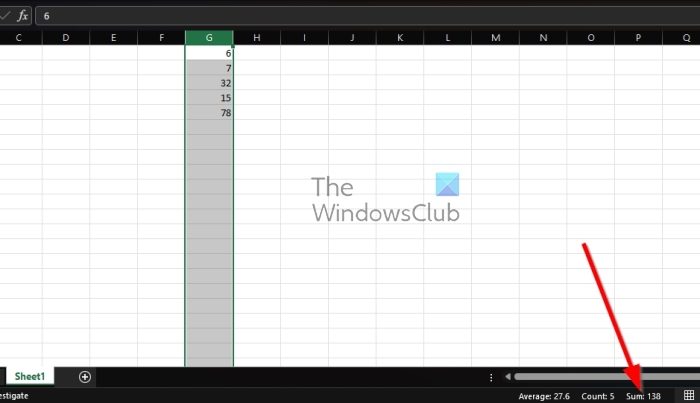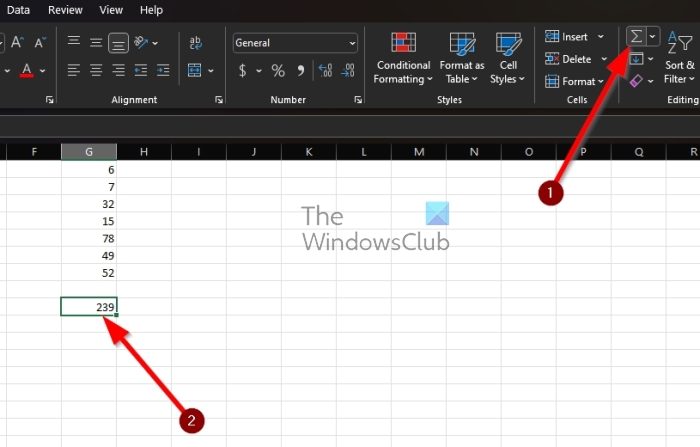Microsoft Excel makes it possible for users to sum columns in multiple ways. For example, you can use the AutoSum, the Status Bar, and even the Sum function to calculate values in one or more columns. As expected, not all folks are Excel experts, and as such, it is our duty to explain how to get things done in the easiest of ways.

How to Sum a Column in Excel
To sum a Column in a Microsoft Excel spreadsheet, you can use the AutoSum, the Status Bar, and even the Sum function to calculate values in one or more columns as explained below.
1] Use the Excel status bar to Sum a Column in Excel

One of the quickest ways to sum a column in Microsoft Excel is to take advantage of what the status bar has to offer.
- First, you must open Microsoft Excel, then open a blank workbook.
- You can also open a workbook that is already populated with information.
- The next step is to select all the cells in your column that contains the numbers you want to sum.
- In order to select the entire column, you can simply click on the column letter at the top.
- Once that is done, look to the Status Bar and you’ll see the calculated sum of all the numbers in the selected cells.
2] Sum a Column in Excel using AutoSum feature

Another great way to calculate sums in a column is to make use of the AutoSum feature. It is quite useful, so let us explain what needs to be done.
- To begin, open Microsoft Excel and the relevant workbook.
- From there, click in the empty cell below the values you want to calculate.
- After that, please go ahead and click on the Home tab above the Ribbon.
- Next, you must select AutoSum on the Ribbon to move forward.
- Right away the results should appear in the selected cell. You can do manual calculations to see if the numbers are correct.
3] Use the SUM function to Sum a Column in Excel
Finally, we want to look at how to use the SUM function to calculate values in one or more Excel columns. Now, we should note that this is the same as AutoSum, but instead, you are required to manually enter the formula rather than rely on things being done for you.
To get started, launch the relevant workbook or spreadsheet.
Click on the cell where you want the results to appear.
In the selected cell, please type the following function along with the range where the data is located:
=SUM(C2:C11)
If you want to count values from chosen columns, you must add your cells in the SUM function and ensure they are separated with commas. It should look similar to the following:
=SUM(C2,C5,C8)
For those who want to add specific cells and a range, please use the following SUM function:
=SUM(C2:C5,C8,C10)
Finally, people who want to sum an entire column, must add the column letter to the SUM function, and ensure the results come up in a different column:
=SUM(C:C)
That’s it.
READ: How to use the SUMSQ function in Excel
How do you AutoSum in Excel?
When it comes down to the AutoSum feature in Microsoft Excel, is super easy to use. All you have to do is select a cell next to the numbers you want to calculate, then click the AutoSum icon on the Ribbon. From there, click on the Enter key, then the results should appear in the cell.
What are the shortcut keys for AutoSum in Excel?
The AutoSum button is located on the Ribbon under the Home tab, so it is not hard to find. However, if you’re not interested in pressing so many keys to get to a single button, how about using the shortcut keys instead? Simply press Alt+= and everything should work just as fine.